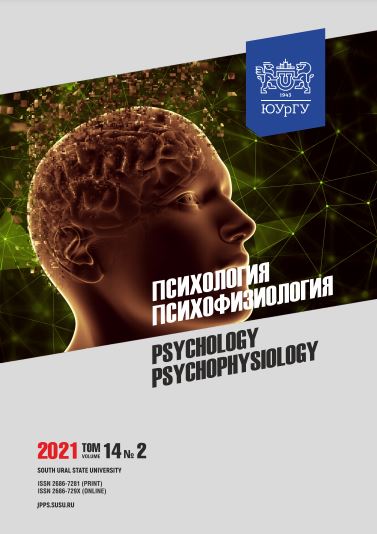TEENAGE STUDENTS MOTIVES OF INTEREST AND SATISFACTION WITH PHYSICAL EDUCATION AND SPORTS
Abstract
Abstract. The development of physical education is associated with an objective social need for ensuring optimal physical activity of a person. Physical education is an integral part of social culture in general aimed at strengthening health, developing physical, moral and cognitive abilities of a person to harmonize personality formation. Regular exercise is the main and almost the only way to prevent physical degradation in adolescents. Emotional satisfaction plays an important role when it comes to physical exercises and sport. In the northern region, where climate contributes to physical inactivity, promoting sports participation is becoming an extremely important aspect of pedagogical activity for both a physical education teacher and a trainer. Aim: the paper presents an experimental study and theoretical justification of the motives of interest and satisfaction with physical education and sport among adolescents. Materials and methods: The study involved adolescents (5–10 grades) of various educational institutions of Surgut and Surgut region. The total sample consisted of 256 students of both sexes. The following methods of scientific and pedagogical research were used: theoretical analysis and generalization of literature and scientific data; methods of socio-psychological research; empirical methods; methods of mathematical processing. The effectiveness of psychological and pedagogical techniques for forming interest and satisfaction with physical education and sport in adolescents were analyzed. Results: A high level of interest in physical education and sport among schoolchildren is observed when using an interdisciplinary approach and various extracurricular activities that are integrated into a single physical education system. Conclusion: The paper provides a theoretical analysis of the ideas on the formation of the main motives of interest and satisfaction with physical education and sport among adolescents in a modern comprehensive school. The structure, content and factors influencing the formation of such motives were determined experimentally.
Downloads
References
2. Yakovlev B.P., Babushkin G.D., Babushkin E.G., Usaeva N.R. The interdependence of motivation and emotions in physical education and sports activity. Teoriya i praktika fizicheskoi kultury = Theory and Practice of Physical Culture. 2014; 2: 87–89. (in Russ.). https://www.elibrary.ru/item.asp?id=21166913
3. da Silva J., Andrade A., Capistrano R. et al. Insufficient levels of physical activity of adolescents associated with sociodemographic, environmental and school factors. Ciencia & Saude Coletiva. 2018; 23 (12): 4277–4288 DOI: 10.1590/1413-812320182312.30712016
4. Shibkova D.Z., Baiguzhin P.A., Semenova M.V., Shibkov A.A. Morphofunctional and psychophysiological features of adaptation of schoolchildren to educational activities. Chelyabinsk: South Ural State Humanitarian and Pedagogical University. 2016: 380 (in Russ.). https://www.elibrary.ru/item.asp?id=26847221
5. Ilyin E.P. Psychology of physical education. SPb. RSPU im. a. I. Herzen, 2000: 486. (in Russ.). https://www.elibrary.ru/item.asp?id=21172675
6. Vilensky M.Ya., Solovyov G.M. The main essential characteristics of the pedagogical technology of the formation of physical culture of the individual. Fizicheskaya kultura: vospitanie, obrazovanie, trenirovka = Physical education: education, training. 2001; 3: 2–7. (in Russ.). https://www.elibrary.ru/item.asp?id=40374457
7. Kudryavtseva O.V., Belyaev V.S., Solovykh M.V. The semantics of emotional-sensual state of mind of schoolchildren as a result of pedagogical effects at physical education lessons. Fizicheskaya kultura: vospitanie, obrazovanie, trenirovka = Physical education: education, training. 2014; 6: 50–53. (in Russ.). https://www.elibrary.ru/item.asp?id=22564311
8. Belyaeva L.A. Investigation of the influence of physical training and sports upon the development of the emotional sphere of teenagers personality. Vestnik Tomskogo gosudarstvennogo pedagogicheskogo universiteta = Tomsk State Pedagogical University Bulletin. 2011; 10 (112): 162–165. https://www.elibrary.ru/item.asp?id=17073558
9. Alcaraz-Munoz V., Izquierdo M.I.C., Garcia G.M.G. et al. Joy in Movement: Traditional Sporting Games and Emotional Experience in Elementary Physical Education. Frontiers in psychology. 2020; 11: 588640 DOI: 10.3389/fpsyg.2020.588640
10. de Oliveira V.M., Brasil M.R., Mattes V.V., da Silva S.R. Motivational level for sports practice in schoolchildren: influence factors. Educacion fisica y ciencia. 2020; 22 (3): e133. DOI: 10.24215/23142561e133
11. Navarro-Paton R., Pazos-Couto J.M., Rodriguez-Fernandez J.E., Arufe-Giraldez V. Measuring physical self-concept of schoolchildren aged 10 to 16 on physical education lessons. Journal of human sport and exercise. 2020; 15 (1): 1–13. DOI: 10.14198/jhse.2020.151.01
12. Ramirez-Granizo I.A., Sanchez-Zafra M., Zurita-Ortega F. et al. Multidimensional Self-Concept Depending on Levels of Resilience and the Motivational Climate Directed towards Sport in Schoolchildren. International journal of environmental research and public health. 2020; 17 (2): 534. DOI: 10.3390/ijerph17020534
13. Perez-Ordas R., Cebamanos M.A., Nuviala R., Nuviala A. Evaluation of Extracurricular Sports Activities as an Educational Element for Sustainable Development in Educational Institutions. Sustainability. 2019; 11 (12): 3474. DOI: 10.3390/su11123474
14. Durkin P.K., Lebedeva M.P. Formation of students interest in physical culture. Fizicheskaya kultura v shkole = Physical education at school. 2016; 1: 36–41. https://www.elibrary.ru/ item.asp?id=25402658
References on translit
-Copyright (c) 2021 Psychology. Psychophysiology

This work is licensed under a Creative Commons Attribution-NonCommercial-NoDerivatives 4.0 International License.



